Table For Two: Interviews
Soldiers in Boots, Girls in Lakes: Bill Talks with David Abrams
categories: Cocktail Hour / Table For Two: Interviews
comments: Comments Off on Soldiers in Boots, Girls in Lakes: Bill Talks with David Abrams
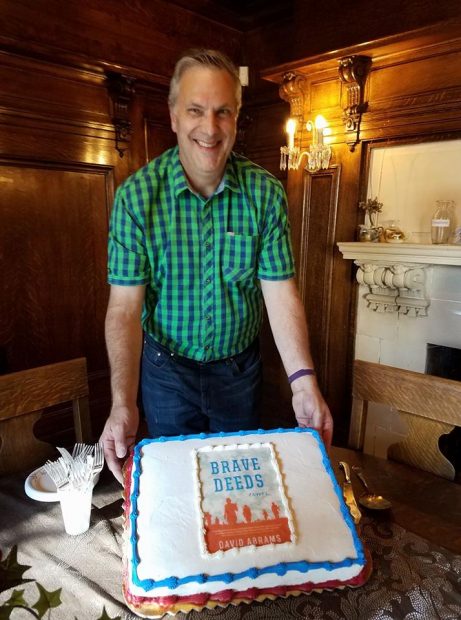
David at his launch party. Wouldn’t a cake be a good idea?
David Abrams and Bill Roorbach first met at PNBA, Pacific Northwest Booksellers Association conference, which took place in Tacoma, Washington back in 2012, when David’s book Fobbit was new and Bill’s book Life Among Giants had just been released. These friendships on the road with new books bloom quickly, and are reinforced by chance meetings across years to come. On the occasion of the publication of their newest books, Bill and David (Not that Bill and Dave!) thought they better have a virtual conversation, as the road wasn’t going to bring them close this time around. Continue reading →
Lewis Robinson’s “Talk Shop” Podcast, with Yours Truly, Bill Roorbach
categories: Cocktail Hour / Podcasts / Table For Two: Interviews
comments: Comments Off on Lewis Robinson’s “Talk Shop” Podcast, with Yours Truly, Bill Roorbach
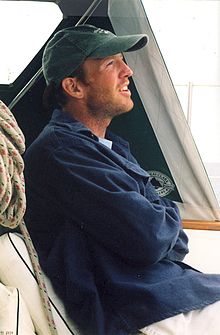 I enjoyed this talk with Lewis Robinson, which took place in his man cave with microphones, with an actual train going by. I sound like I’m almost asleep–and it’s true, I was very tired. But Lewis drew me out, and as David Olson said on Facebook: “This view into the writer’s mind is both fascinating and scary. In three words, I loved it!” I loved it, too, as Lewis is a new old friend, and an awfully smart, sweet guy, also a novelist.
I enjoyed this talk with Lewis Robinson, which took place in his man cave with microphones, with an actual train going by. I sound like I’m almost asleep–and it’s true, I was very tired. But Lewis drew me out, and as David Olson said on Facebook: “This view into the writer’s mind is both fascinating and scary. In three words, I loved it!” I loved it, too, as Lewis is a new old friend, and an awfully smart, sweet guy, also a novelist.
All episodes of Talk Shop are free: check out past interviews with Justin Tussing, Richard Russo, Susan Conley, Ron Currie Jr., Jen Blood, Monica Wood, Callie Kimball, Brock Clarke, Megan Grumbling, Gibson Fay-Leblanc, Kate Christensen, Phuc Tran, and Keith Lee Morris.
Table for Two: An Interview with Mira Ptacin
categories: Cocktail Hour / Guest Columns / Table For Two: Interviews
comments: 5 comments
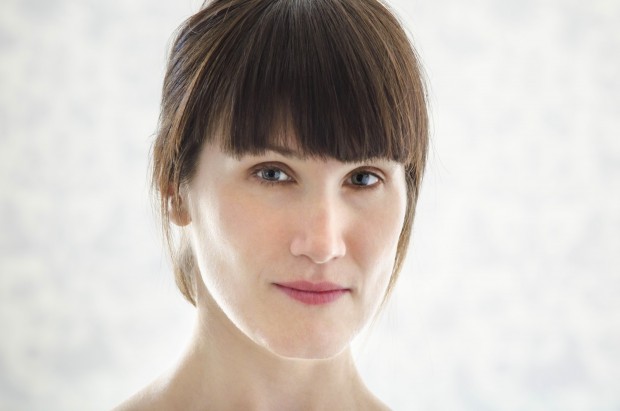
Debora: Poor Your Soul is such a lonely title. Very sad. Tell us about what’s inside your pages.
MIRA: Here’s the story: in 2008, at age twenty-eight, I accidentally got pregnant, despite taking birth control pills and never missing a dose. (I’m that 1 percent.) It wasn’t easy, I wasn’t happy about it, but I embraced it. And even though we’d only known each other for just three months, my boyfriend Andrew and I got engaged. Five months later, during the ultrasound that was to predict the sex of our baby, doctors found instead that our child had a constellation of birth defects and no chance of survival outside my womb. I was given three choices: terminate the pregnancy, induce delivery, or do nothing and inevitably miscarry. Poor Your Soul simultaneously traces my mother’s immigration from Poland at the age of twenty-eight, the adoption of her son Julian, his tragic death, and her reaction to the grief that followed. Both our stories examine how woman copes with the inevitable but unexpected losses a woman faces in the search for her identity. But overall, this isn’t a sad story. It’s a love story, about how I found love in my marriage, in my family, and for myself when everything around us was in chaos. It’s about perseverance and will. Continue reading →
Table for Two: Debora Black talks with Steve Almond about Football, Hate Mail, Life, and Art
categories: Cocktail Hour / Table For Two: Interviews
comments: 3 comments
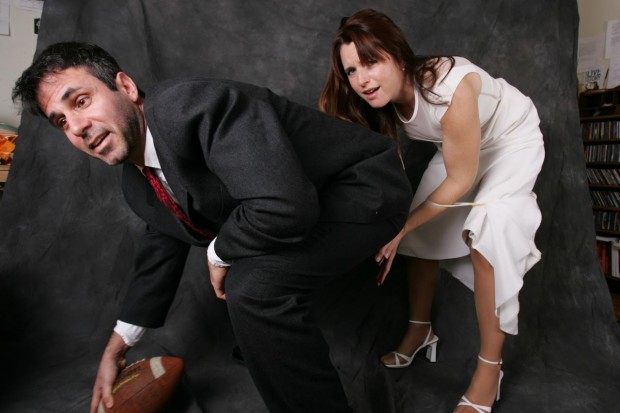
Debora: Steve you’re everywhere—The Best American Short Stories, The Pushcart Prize, The New York Times Magazine’s Riff, The Rumpus online magazine, and you host the Dear Sugar podcasts with Cheryl Strayed. You are into journalism, fiction, life advice, and politics. You are Football, candy, rock and roll, hate letters, open letters, writing strategies, and book reviews. What is your mission as a writer, what impulses drive your work?
Steve: Oh, I’m like the rest of you suckers. I have this persistent dream that I’ll build a bridge of love to the rest of the species. For the most part, I chase my obsessions down. Continue reading →
Table for Two: An Interview with Jeff Thomson, Poet and Memoirist
categories: Cocktail Hour / Table For Two: Interviews
comments: 1 comment
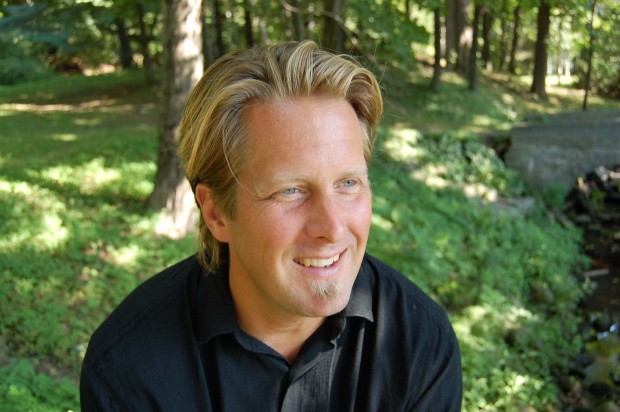
Jeff Thomson is a friend of mine, and lives in the same small town in Maine, which is Farmington. His poetry and now his memoir echo out into the world, however. Jeff spent a Fulbright year in Ireland, and returns to Costa Rica frequently both for surfing with his son and teaching a college course in the rain and cloud forests there. He’s a birder and athlete and likes a pint of beer. He’s a translator, too, and has published a juicy edition of the poetry of Catullus, rendered from the Latin. For our Table for Two meal—a fantasy, of course—he suggests the deck of the Corcovado Tent Camps adjacent to the back entrance of the Corcovado National Park (which is little more than a tapir path). So we’ll sip a couple of boozy drinks while looking over the Pacific, the primordial green of the Pacific coastline running for miles in both directions. Scarlet Macaws overhead. Spider monkeys in the wild almond. Crocodiles lying on the beach like distant logs, ceviche and patacones and margaritas made from fresh mandarina juice. Continue reading →
Table for Two: An Interview with Julianna Baggott
categories: Cocktail Hour / Guest Columns / Table For Two: Interviews
comments: Comments Off on Table for Two: An Interview with Julianna Baggott
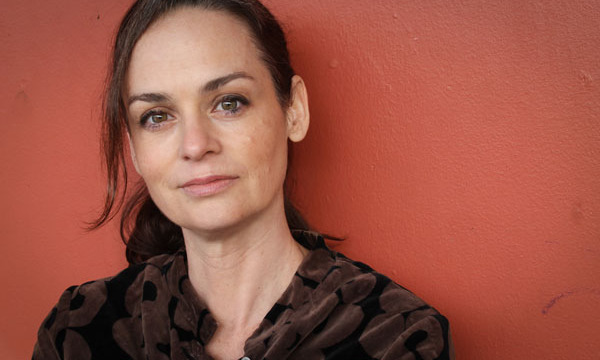
You’ve never heard of Harriet Wolf, one of the 20th Century’s great American writers. But don’t feel too bad — neither had an unnamed faculty member in the Vermont College of Fine Arts MFA program.
“I gave a reading at VCFA to a bunch of writers,” says Julianna Baggott, whose novel, Harriet Wolf’s Seventh Book of Wonders, imagines the existence of a seventh book in the Wolf oeuvre, a memoir that exposes the “true stories” behind Wolf’s six other classics. “And a couple of writers, well-known writers, came up to me afterwards, and said, ‘you know, I’m really not familiar with Harriet Wolf’s work.’
“And I was like, ‘Oh, I don’t think I made that clear — she doesn’t exist.’ So, then I thought, well, let’s not make that clear, let’s build a little bit of her lore…” Continue reading →
Table for Two–An Interview with Philip Lopate
categories: Cocktail Hour / Guest Columns / Table For Two: Interviews
comments: 6 comments
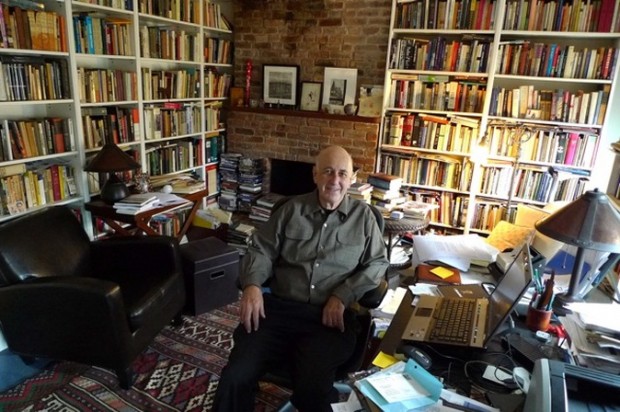
GLANCING BACK
Your essay, The Poetry Years (from Portrait Inside My Head) looks back at where and how you started writing professionally. You say you had no ambitions toward writing poetry until you were a student at Columbia and suddenly doing it, kind of by accident. What experiences drew you in?
PHILLIP: When I was an undergraduate at Columbia, my writer-friends were mostly poets. A few fiction writers, not a single nonfiction writer in the batch. Monkey see, monkey do: I started reading and writing poetry. Continue reading →
Table for Two: An Interview with Nina de Gramont on Publication Day
categories: Cocktail Hour / Table For Two: Interviews
comments: 3 comments
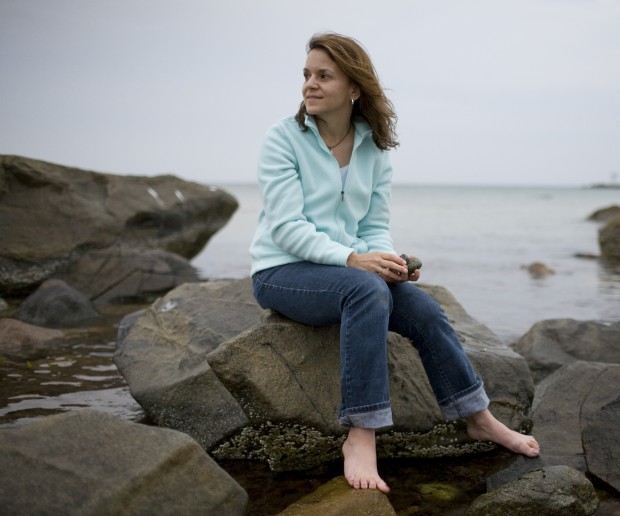
Bill and Dave’s doesn’t always pay for a private jet to Cape Cod for lobster rolls at the Sesuit Harbor Café, nor for 12 professional parachutists to fly our subject safely down to Earth and our dinner conversation, but Nina de Gramont is one of our favorite writers and people and also married to Dave, so. It’s sunset, it’s summer still, this golden clear month of September, and this is familiar territory for Nina, this storied Cape Cod, but also in part the setting for her new novel, The Last September, about a woman whose greatest love is shattered by a murder that takes place in the first pages, even as the story moves back to the days before all that. But our meal has arrived, and the sun is a red ball on the horizon, and today is publication day.
Bill: Congratulations, Nina, on a great new book. I enjoyed it immensely, and couldn’t put it down, also really enjoyed re-reading passages. It’s beautifully put together, vivid, harrowing, smart, and even in the roughest moments, delicate, musical, compassionate, fine. Your protagonist, Brett Mercier, is named for the Hemingway character, Jake Barne’s great love in The Sun Also Rises, Lady Brett Ashley, and the characters remark on this. I remember reading that novel in the sun on the steps at the Egbert Student Union at Ithaca College, 1971, reading it very fast and then starting back at the beginning, more than half in love with Brett and so miserably sorry for Jake, who’d had his dick shot off in the war, to put it as Hemingway does not. I tried to teach that novel when I was at Ohio State, and the kids really hated it, finding everyone racist and anti-Semitic, also obsessed with animal abuse, and self-pitying. How does The Sun Also Rises fit in here? Is it more than Brett’s name? And how do you read Hemingway these days? Continue reading →
Table For Two: An Interview with T.C. Boyle
categories: Cocktail Hour / Reading Under the Influence / Table For Two: Interviews
comments: 5 comments
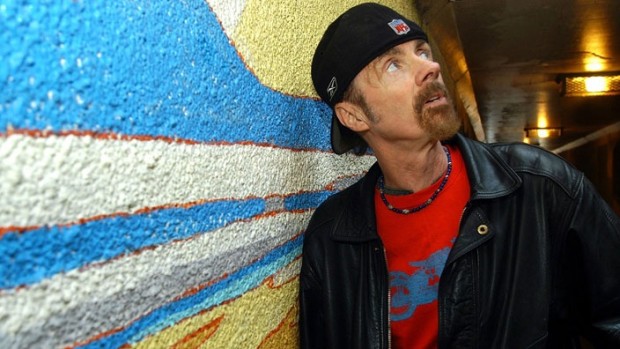
Debora Black: You always seem to be having a really good time writing your characters and their situations—even when the subject matter wouldn’t suggest a good time. But you like to toy with things, amp up a situation and play it out. In your latest novel, The Harder They Come, you transform sunny California, its middle-class inhabitants, and their American ideals into a war zone. What compelled you to write this story?
Table for Two: Debora Black Interviews Abigail Thomas
categories: Cocktail Hour / Table For Two: Interviews
comments: 2 comments
![Abigal Thomas [photo by Jennifer Waddell]](http://billanddavescocktailhour.com/wp-content/uploads/2015/04/Abigal-Thomas-Credit.-Jennifer-Waddell-412x620.jpg)
Abigal Thomas [photo by Jennifer Waddell]
Love can accommodate all sorts of misshapen objects: a door held open for a city dog who runs into the woods; fences down; some role you didn’t ask for, didn’t want. Love allows for betrayal and loss and dread. Love is roomy. Love can change its shape, be known by different names. Love is elastic.
And the dog comes back.
This is the best definition of love I’ve ever heard. It’s beautiful. Poignant (for the person who has read your book), except that it’s stronger than that, in control of itself. And then so practical and funny at the end, this dog love. All I could do was close the book, and hold it to my chest while all of the emotions and thoughts flooded through. The total of which has me wondering this: When you write, do you sense the quiet power of what you’re writing? Is it something that forms on its own from an unconscious space or do you construct it purposefully?
Abby: First, thank you for saying such extremely nice things. It’s not really a conscious choice, the way I write, except when I revise to make it succinct. I love what you said about its forming on its own from an unconscious space. That describes exactly what writing is like. Continue reading →



